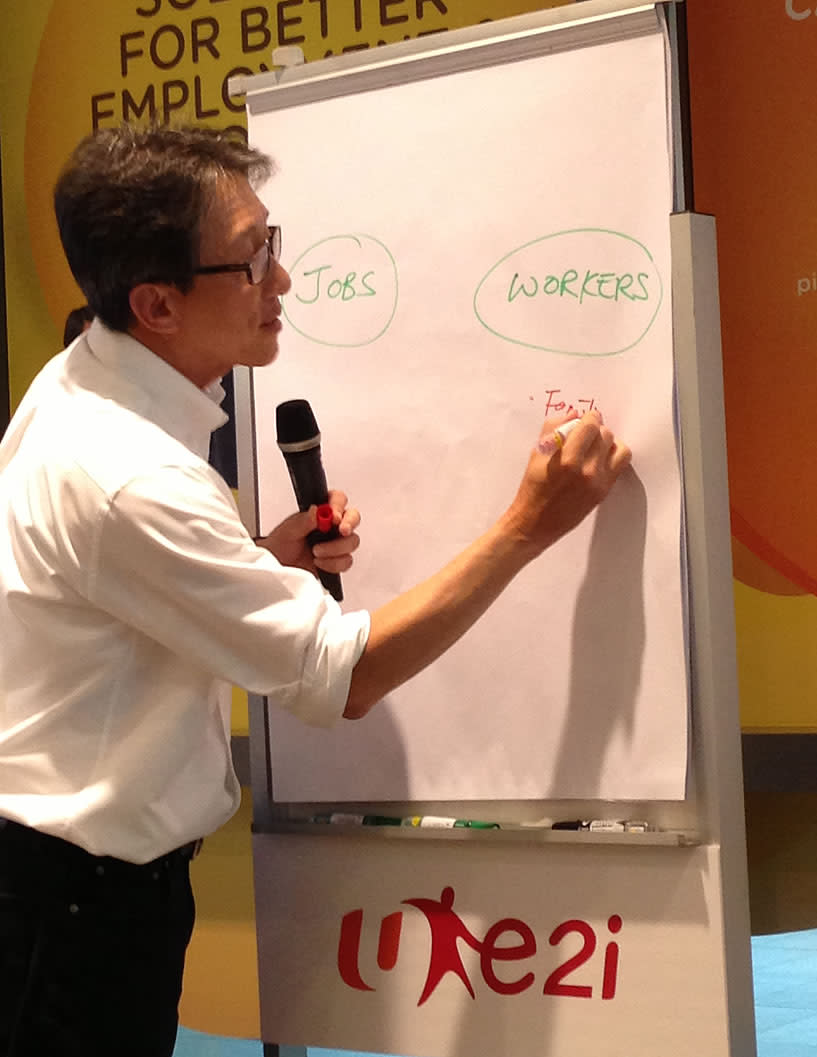Will 2014 be ‘breakthrough year’ for low-wage workers in Singapore?
Benjamin Chiang is an enthusiast of good advertising, deep thinking, fast living and chocolate. He writes also at www.rangosteen.com. The views expressed below are his own.
COMMENT
Some time around the 9th of August 2013 when Singapore was busy celebrating National Day, far away in Liverpool, England, was a street cleaner's strike (http://www.bbc.co.uk/news/uk-england-merseyside-23636167).
Bins over flowed and streets stank. For a few days, the normally invisible work of cleaners was not only very visible, but very smell-able.
For a few days, the work of both cleaners and unions stood in your face -- and it was not pleasant.
Low-wage workers can be found doing a variety of jobs: they keep our public spaces clean, they protect and secure our buildings and they slog quietly at the back room of offices. They do the work that few are willing to do. And without them, society just couldn't function.
At a recent dialogue in the NTUC's new Devan Nair Institute, Secretary General Lim Swee Say quoted, "2014 will be the year of breakthrough for low-wage workers".
"Breakthrough" for me is when I actually see increasing reports of cleaners having their wages lifted and the NTUC has a few weapons in their arsenal to help them achieve this.
One of these would be the "Progressive Wage Model".
In this model, companies are required to pay a decent minimum and allow the worker to have progressively increasing payments after that: $1,000 to start with, $1,200 later, $1,400 after that. (Today, cleaning companies who do not comply with this will not be awarded a licence for them to carry out their work).
So far this has seen delightful results. Cleaners working for MOE schools are now required to be paid at least $1,000 and progressive salary improvements thereafter. Changi Airport trolley handlers have been raised from $500 to $1,000 under the same program.
Funding is dispersed to companies to develop technologies that will make work easier, smarter and safer for their staff.
To most of us, a hotel chain buying an automatic ironing robot is none of our concern. But for the auntie who has been ironing by hand for her entire career (sometimes even scalded by hot steam), this robot means that she is now able to go home an hour earlier.
Not all of us have had the good fortune of being born into functional families, sat through good education or had access to loans for business. For whatever reason, these Singaporeans have to accept low wages in difficult jobs. Society can't artificially give them more money, but we can help to make their jobs easier and safer.
We can help to improve their skills, so that they don't stay as low-wage workers for the rest of their lives.
Government can also help to shave costs (GST Credits is a good example).
Us as individuals can certainly help by acknowledging these jobs as honourable and respectable jobs, earning a honest salary.
No one organisation can accomplish all this. Not the Government alone, not the NGOs alone and not a small handful of companies.
It is the collective work of all of society: only then will we realise the mother of all breakthroughs, much larger than what Lim Swee Say had in mind when he set that benchmark for the NTUC.
Meanwhile, back in Liverpool, the strike is over. After a week-long battle, the unions have settled for a 1 per cent pay increase.
With a history of being paranoid in preserving industrial peace, Singapore must do better, and it can do better -- but it will need the help of all.
Related stories
COMMENT: Why St Margaret's Principal was wrong
COMMENT: A tale of two May Days in Singapore


